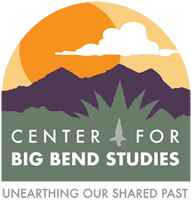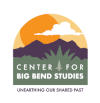WE ARE CURRENTLY ACCEPTING APPLICATIONS FOR THE FALL 2025 MASTERS COHORT. PLEASE CONTACT SRSU ANTHROPOLOGY (anthropology@sulross.edu) TO LEARN MORE ABOUT THE APPLICATION PROCESS.
We are proud to announce the creation of a two-year Master of Arts program in Anthropology at SRSU. This program (starting Fall 2025) provides students with a background in anthropological theory, field methods, and research that utilizes the rich cultural resources preserved in the greater Big Bend. Student research will be conducted in collaboration with the Center for Big Bend Studies (CBBS). Students who successfully complete their MA degree at SRSU will be poised to enter the work force as the next generation of North American cultural heritage scientists, or to continue their education toward careers in museum curation or the academy.
Graduate Application Requirements:
We strongly encourage students interested in the MA program to contact the Anthropology Program prior to application (anthropology@sulross.edu), or you can reach out directly to any Anthropology Faculty to discuss questions specific to your research and learning interests.
Applicants must meet the standard SRSU requirements for graduate admissions. The additional requirements for the Anthropology Program are:
- Three letters of recommendation
- Curriculum Vitae or Resume
- One-page statement of intent describing why you want to attend SRSU, your research interests, and how an MA degree will move your anthropological career forward.
Applications are due by May 31, 2025.

Graduate Degree Track and Curriculum
The MA program is comprised of a 36-credit thesis-based degree plan, with 24 credits of Anthropology core curriculum and 12 elective credits (six of which must be anthropology). We intend to admit six students during the fall semester of every year to maintain small cohort sizes and low student to professor ratios. All required courses will be routinely offered on a one- or two-year rotation, with students expected to complete their degrees in two years. Full course listing available here.
Projected Schedule

The anthropology courses at Sul Ross emphasize hands-on training and fieldwork to familiarize students with the application of different methods/technologies for the appropriate setting. This begins with courses dedicated to understanding the intricacies of CRM archaeology, creating research designs, conducting data analysis, employing different field and lab methods, and using common mapping software such as QGIS. Students are required to take Archaeological Theory to provide them with a broad understanding of the field’s history, contemporary approaches, and future directions. Topical courses such as Lithic Analysis and Experimental Archaeology provide additional hands-on experience that are highly beneficial for careers in CRM and Academia. Additional electives such as Human Ecology, Anthropology of Conflict, First Peoples of the Western Hemisphere, and the Archaeology of the Greater Big Bend Region provide important background and theoretical frameworks for conducting archaeological research. Importantly, the anthropology program will facilitate our graduates to develop and use the intellectual and practical competencies that are the foundation of personal and professional development and lifelong learning, including oral and written communication, scientific literacy and reasoning, data management and analysis, problem solving, and technological competency.

